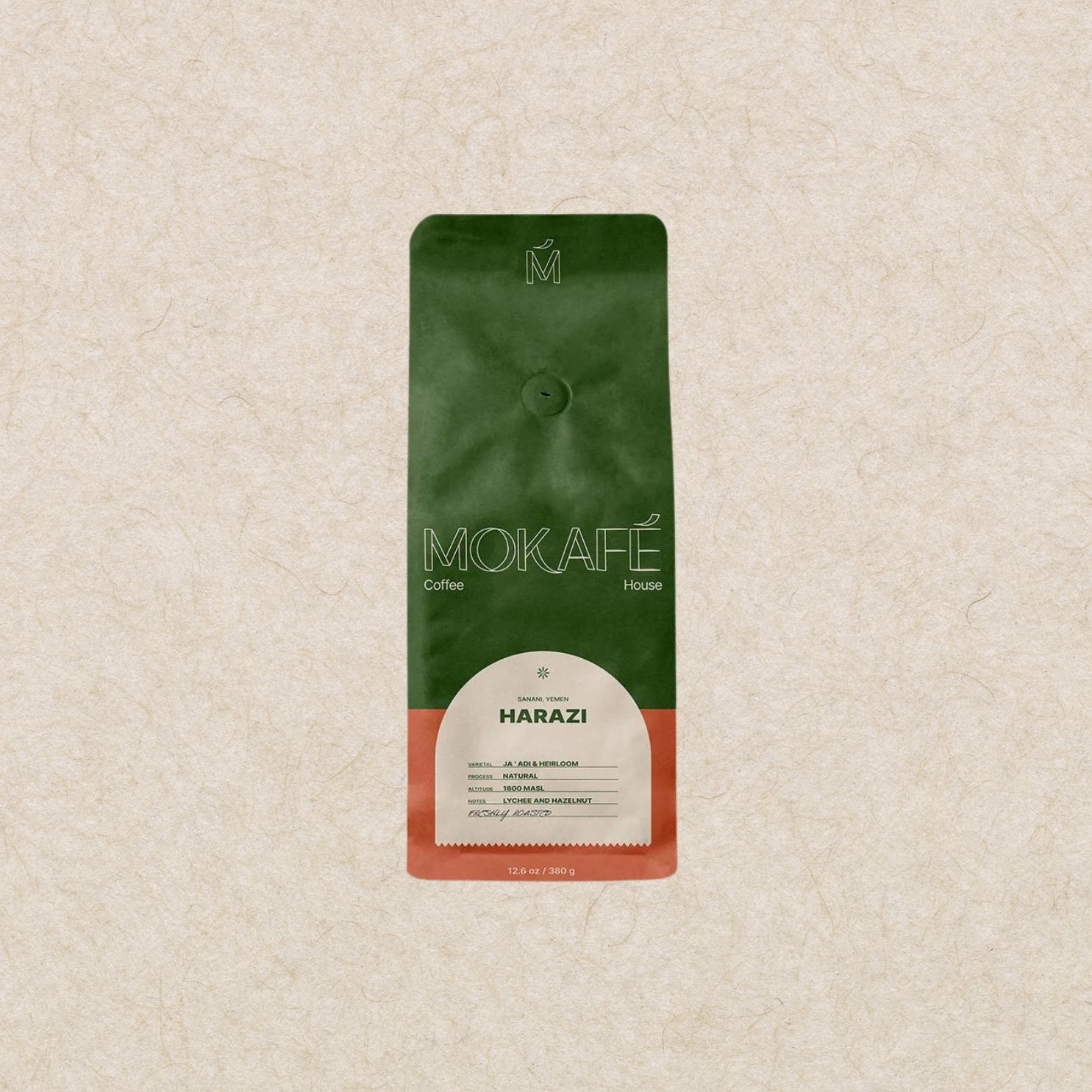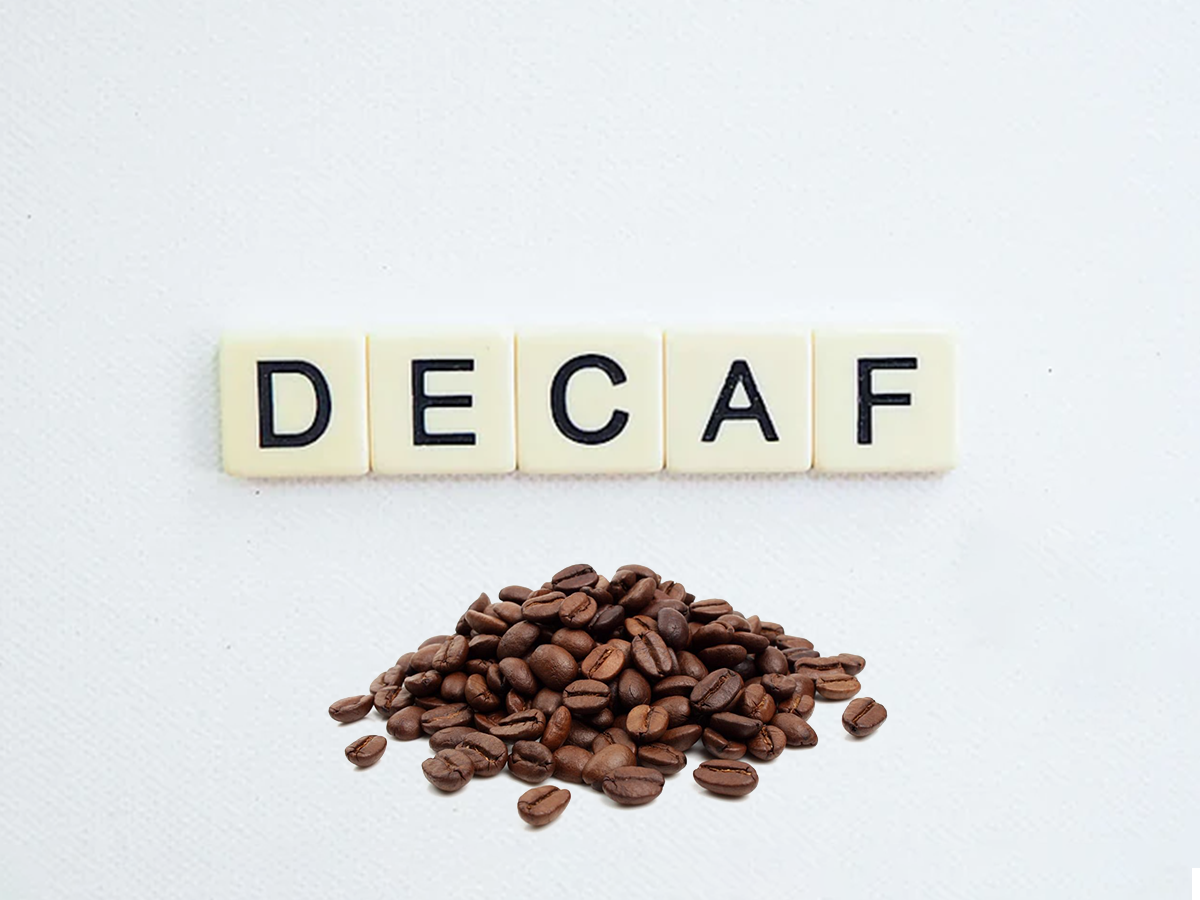Decaffeinated coffee, often called decaf, has become a popular choice for individuals seeking the rich, aromatic taste of coffee without the energizing effects of caffeine. However, a common misconception is that decaf coffee is entirely caffeine-free. In reality, decaf coffee still contains a small amount of caffeine, significantly less than regular coffee.
This article will delve into decaf coffee, exploring decaffeination methods and the caffeine in decaf coffee, and answer the essential questions: "Does decaf coffee have caffeine?" and "How much caffeine in a decaf coffee?" Additionally, we will discuss its potential health benefits and drawbacks and provide recommendations for finding high-quality decaf coffee.
Before further details, let us understand the decaffeination process and the methods involved.
The Decaffeination Process
Decaffeination is the process used to reduce the caffeine content in coffee beans, and various methods are employed for this purpose. These methods include the Swiss Water Method, carbon dioxide extraction, and chemicals such as methyl chloride or ethyl acetate. Decaffeinated coffee is similar to regular coffee but with nearly all its caffeine removed. It's important to note that decaf coffee still contains a minimal amount of caffeine, approximately 3%, compared to its caffeinated counterpart. While a regular cup of coffee typically contains around 95 milligrams of caffeine, decaf coffee contains just 2 milligrams.
Three methods of decaffeinating coffee are explained below
1. The Swiss Water Method
The Swiss Water Method is a natural and eco-friendly decaffeination process. It begins by immersing unroasted coffee beans in water until the water is infused with soluble coffee elements. Next, the caffeine is separated from the water, resulting in a green coffee extract. This extract is then recombined with unprocessed coffee beans containing caffeine. As time passes, the caffeine gradually shifts from the beans into the extract, ultimately leading to nearly caffeine-free beans. So, to answer the common question, "Does decaffeinated coffee have caffeine?" Yes, although only trace amounts remain after undergoing this meticulous Swiss Water Method.
2. Carbon Dioxide Extraction
Carbon dioxide extraction is a safe and efficient decaffeination method. It involves the passage of carbon dioxide through coffee beans, effectively isolating caffeine and other compounds. This process ensures the removal of caffeine while preserving the coffee's flavor. When considering "how much caffeine in decaf coffee," carbon dioxide extraction significantly reduces caffeine content, leaving decaf coffee with only a minimal fraction of the caffeine found in its caffeinated counterpart, typically around 2 milligrams per cup.
3. Methyl Chloride and Ethyl Acetate
Methyl chloride and ethyl acetate are chemical solvents historically used in decaffeination. Methyl chloride, once the chemical of choice, has raised concerns due to its toxicity. The U.S. FDA has established regulations that allow trace amounts of methylene chloride in decaf coffee, but these levels are considered safe for consumption.
The choice of decaffeination method can impact the flavor and quality of the final decaf coffee product. Some individuals prefer decaf coffee processed using the Swiss Water Method due to its natural and environmentally conscious approach.
Caffeine Content in Decaf Coffee
The primary question surrounding decaf coffee is, "How much caffeine is in a coffee decaf?" While decaf coffee isn't entirely caffeine-free, it offers a considerable reduction compared to regular coffee. A typical cup of regular coffee holds about 95 milligrams of caffeine, whereas decaf coffee contains only 2 milligrams. This substantial drop in
caffeine
content makes decaf coffee an appealing option for individuals who prefer the taste and aroma of coffee without the energizing effects of caffeine. It provides a balanced choice for coffee lovers to enjoy the experience while being cautious about caffeine intake.
Is Decaf Coffee Healthy?
The impact of decaf coffee on one's health varies according to personal factors like health status and preferences. Decaf coffee still contains essential antioxidants in both decaf and caffeinated coffee, offering certain health advantages. Here's an overview of the benefits and drawbacks of decaf coffee, which can help individuals make informed choices based on their unique circumstances.
Benefits of Drinking Decaf Coffee
1. Caffeine Sensitivity
Decaf coffee serves as a lifesaver for individuals who are particularly sensitive to caffeine. The side effects of caffeine, such as restlessness, heart palpitations, high blood pressure, insomnia, and anxiety, can be overwhelming. Decaf coffee provides a solution by allowing individuals to enjoy the taste of coffee without triggering these adverse reactions.
2. Caffeine-Induced Health Problems
For some people, caffeine can induce health issues like insomnia, heart palpitations, and gastrointestinal discomfort. Switching to decaf coffee is a sensible choice, as it allows the enjoyment of coffee flavor without increasing these problems.
3. Caffeine-Induced Anxiety
Caffeine-induced anxiety is a common concern. While coffee itself doesn't cause anxiety, it can worsen symptoms in individuals who are already prone to anxiety. Decaf coffee offers a soothing alternative, potentially reducing restlessness and nervousness.
4. Digestive and Dehydration Problems
Some studies suggest that coffee may have a laxative effect on specific individuals, leading to bowel problems. For those with sensitive digestive systems, coffee decaf, which contains significantly less caffeine, is a gentler option. Additionally, it may help mitigate dehydration-related issues, which can be related to excessive caffeine consumption.
Drawbacks of Drinking Decaf Coffee
Decaf coffee offers a caffeine-reduced alternative, but it is important to consider potential drawbacks and health implications. Two key factors are the use of chemicals in decaffeination and its effect on cholesterol levels.
1. Chemicals
Some decaf coffee production processes involve the use of chemicals like methyl chloride, which is also found in paint strippers. While regulatory agencies permit small amounts of this chemical in decaf coffee, individuals concerned about potential health effects should inspect product labels. It is worth noting that decaf coffee that doesn't display its decaffeination method is more likely to have been processed with methyl chloride. Being exposed to high concentrations of this chemical can have adverse neurological effects in humans, raising health-related questions about its safety.
2. Cholesterol
The impact of decaf coffee on cholesterol levels remains a subject of ongoing research. Some studies suggest that decaf coffee might lead to an increase in cholesterol, while others find no significant effect. The current evidence is inconclusive, leaving individuals with cholesterol concerns in a dilemma. For those with existing cholesterol issues, consulting a healthcare professional is advisable to determine the best course of action regarding their coffee consumption.
Where to Find High-Quality Decaf Coffee
When you are looking for decaf coffee, it is important to choose good quality options. Here are two recommendations
1. Guatemala Organic Decaf Single Origin Coffee
This decaf coffee is not only caffeine-free but also produced in an eco-friendly and fair way. It keeps the rich flavors of coffee from Guatemala, so you can enjoy great-tasting decaf coffee without any caffeine.
2. Yemen Organic Decaf Single Origin Coffee
This decaf coffee comes from a farm in Yemen and has a unique taste that represents the region. It's perfect for those who want to experience the flavors of Yemen without the caffeine found in regular coffee.
In both cases, you enjoy decaf coffee without sacrificing flavor or quality. These options are not just good for you but also good for the environment and the communities where the coffee is grown.
Conclusion
Decaf coffee is a delicious and flavorful alternative with very little caffeine. It is a good option for people who want to avoid the stimulating effects of
caffeine
. It is crucial to understand how decaf coffee is made and the potential health benefits and risks before drinking it. By making informed choices and choosing high-quality decaf coffee products, people can enjoy a coffee experience that is good for their health and tastes good.
In summary, while decaf coffee may not be entirely caffeine-free, it offers a suitable compromise for individuals pondering, "Do decaf coffee have caffeine?" The answer is yes but in small amounts. It is a choice that perfectly blends the satisfaction of a steaming cup of coffee with the mindful considerations of health and wellness, acknowledging the presence of caffeine in decaf coffee.
More From Jorge Armando Ciciliani
-
Shop:
Buy Coffee Beans Online
-
Natural Coffee Flavours
-
Frothed Milk vs. Steamed Milk
-
Salt in Coffee
-
Flat White vs. Cappuccino
-
Latte vs Mocha
-
Macchiato vs. Latte
-
Coffee drinks types
-
Health Benefits Of Coffee Beans
-
Cappuccino vs. Latte vs. Macchiato vs. Mocha vs. Americano vs. Espresso
About The Author: Jorge Armando Ciciliani

Jorge is a seasoned coffee professional with a lifelong passion for all things coffee. For over a decade, he has fervently immersed himself in the world of coffee, mastering its preparation, understanding its societal impact, and uncovering its cultural significance. Starting as a barista at the young age of 15 and later managing a coffee roastery, this journey led him to work as a quality control manager for a green coffee importer.
Traveling across countries in Central and North America, Jorge has explored various coffee traditions and honed his skills through Specialty Coffee Association courses. As a QC Cupping coffee connoisseur and sensory skills enthusiast, Jorge is a true expert in the art of brewing and savoring the perfect cup. Consider him your trusted Fika expert.
Follow:
,




